Der er mange ildevarslende tegn, der viser, at du skal se en gastroenterolog, og i dette indlæg lærer du, hvilke symptomer du skal være opmærksom på. En gastroenterolog er en medicinsk professionel og læge, der har gennemgået en streng og omfattende uddannelse for at lære at håndtere, behandle og helbrede medicinske forhold relateret til mave-tarmkanalen. Disse områder omfatter tarmen, maven, leveren, spiserøret og endetarmen.
Med en sådan titel, der kræver over 5 års uddannelse i "intern medicin" og "Gastroenterology" (efter afslutning af afsluttet medicinsk skole); GI-læger yder exceptionel pleje og behandling og er almindeligvis mere succesrige end læger, når det kommer til diagnosticering og behandling af gastrointestinale komplikationer.
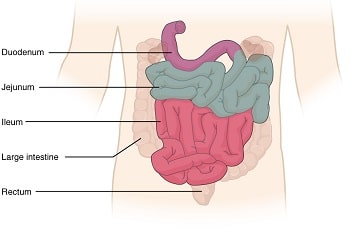
Indholdsfortegnelse
Gastroenterologer modtager specialiseret træning i "endoskopi", som er praksis med at bruge et lille og smalt, men alligevel fleksibelt "rør" med et indbygget kamera, der vil blive brugt til at navigere i mave-tarmkanalen under procedurer, operationer eller diagnostiske tests for at se, om evt. sygdomme eller vækster er til stede.
Når det kommer til gastrointestinale medicinske problemer, vil det at søge behandling hos en gastroenterolog sikre, at du får den mest effektive behandling som muligt da du vil modtage behandling fra en læge, der har den unikke og dybdegående træningserfaring, der vil oversætte til, at du modtager både højkvalitets og "omfattende" behandlingsbehandling for eventuelle GI-relaterede medicinske komplikationer, som du måtte støde på.
Det er statistisk bevist gennem brugen af undersøgelser, at gastroenterologer udfører koloskopier og omfattende pleje af mave-tarmproblemer med en højere succesrate sammenlignet med den eller de behandlinger, der ydes af andre typer læger. Hvad dette betyder for dig er, at du vil modtage behandling, der nøjagtigt vil opdage tilstedeværelsen af kræft eller polypper, mens det resulterer i et fald i chancen for en medicinsk komplikation som følge af behandlingen (GI-behandlede patienter kan også forvente at bruge mindre tid i hospitalet).
I denne artikel dækker vi "Top 15 advarselstegn på, at du skal se en gastroenterolog", som vil hjælpe dig med at afgøre, om du har symptomerne på en medicinsk komplikation, der ville kræve opmærksomhed og behandling fra en GI læge.
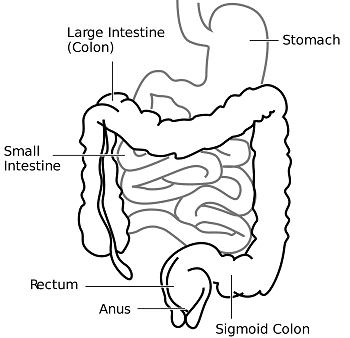
Når du først begynder at genkende nydannede "smerter" eller tegn/symptomer, der stammer fra fordøjelseskanalen, såsom halsbrand, mavesmerter, diarré eller forstoppelse, kan du spørge dig selv, om du skal besøge en almindelig læge eller ej. internlæge eller en gastroenterolog (fordøjelsesspecialist). Hvem du vælger til at diagnosticere din(e) tilstand(er) i begyndelsen af, at de opstår, kan variere af en række faktorer.
I nogle situationer kan det være uklart at træffe det rigtige valg om at gå til en læge eller en gastroenterolog, men nedenfor hjælper vi dig med at forstå symptomerne for at holde øje med mave-tarmproblemer, som bør diagnosticeres og behandles af en GI-læge.
Hvis du lige nu oplever symptomer eller smerter i fordøjelsesområdet for allerførste gang, kan det første skridt være at søge rådgivning fra din primære læge, såsom din primære læge eller internist.
Dette vil forhåbentlig være en læge, som du har opbygget et forhold til over tid, da han/hun ville have fuld adgang til din medicinske og behandlingshistorie, som kan gennemgås for at hjælpe med at bestemme, hvad der forårsager de symptomer, du oplever.
Når du møder din læge og giver ham/hende dine symptomer, vil der blive udført en fysisk undersøgelse for at tage stilling til, om der skal udføres prøver eller ej. Når lægen har afsluttet den fysiske undersøgelse og har en god idé om, hvad der forårsager dig de pludselige mave-tarmsmerter, kan han bestemme, at behandlingen skal gives af en specialist, der kan yde affektiv helbredelse. I dette tilfælde vil "specialisten" være gastroenterologen.
Dr. Tarugu, en erfaren og prisvindende gastroenterolog fra South Florida anbefaler, at personer, der konsekvent oplever enten sporadiske eller tilbagevendende opblussen under tidligere diagnosticerede tilstande (såsom colitis ulcerosa, Crohns sygdom eller IBS), straks skal søge behandling hos en gastroenterolog for at undgå yderligere vækst eller komplikationer. stærk> modenhed.
Under din behandling fra gastroenterologen vil han/hun opdatere din læge med status for din(e) tilstand(er) og de fremskridt, der sker. Disse opdateringer vil hjælpe din primære læge med at få en god forståelse af din status, hvilket vil hjælpe lægen med at give dig ordentlig pleje nede på listen som støtte efter restitutionen. Et par andre gastrointestinale sygdomme, som GI-læger behandler, er sygdomme, der er lokaliseret i bugspytkirtlen eller leveren.
Hvis din primærlæge har mistanke om, at der opstår problemer i disse områder, er det sikkert at antage, at du vil blive henvist til en lokal gastroenterolog for en dybdegående diagnose, og så en behandlingsplan kan udformes.
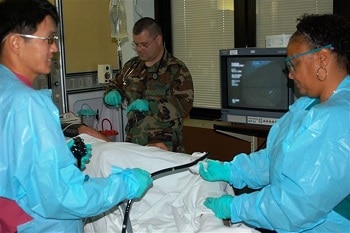
Hver af dem er unikke tegn på potentielt alvorlige tilstande, der ikke bør afvises som "ikke vigtige", da hvert af de ovennævnte symptomer kan resultere i meget værre komplikationssignaler, hvis de ikke diagnosticeres og behandles "tidligt".
Nedenfor vil vi dække, hvad hvert af disse symptomer kan betyde, og hvorfor det er vigtigt at søge vejledning og behandling af en GI-læge så hurtigt som muligt.
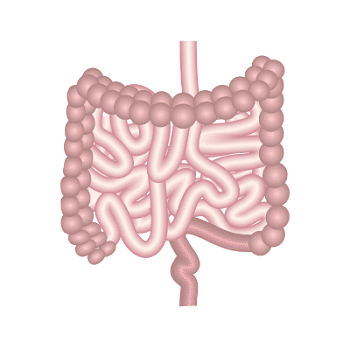
Det anslås, at i alt 60 millioner individer i USA oplever og lider af halsbrand i gennemsnit mindst én gang om måneden, og at omkring 15 millioner mennesker lider af tilstanden "dagligt". At opleve symptomer på sur fordøjelsesbesvær (halsbrand) er mest typisk blandt gravide kvinder og ældre personer.
Der er en tilstand kaldet "Gastroøsofageal refluks", som er en kropslig tilstand, der får mavesyre til at flyde baglæns og vende tilbage til spiserøret. På grund af dette vil nogle personer, desværre, opleve symptomer, der stammer fra dette, når denne proces finder sted (som kan være dagligt, ugentligt eller månedligt).
Et af de første tegn på at se en gastroenterolog for halsbrand er oplevelsen af at mærke et opvarmet ubehag, der kommer fra området bag brystbenet. Denne følelse har en tendens til at passere til hals- og nakkeområdet, så ubehag af enhver art i dette område bør være et advarselstegn at du skal til en gastroenterolog til diagnose/behandling.
Et andet advarselstegn på sure opstød er en "sur" eller "bitter" smag bagerst i halsen, da dette er smagen af mavesyren. Da symptomerne på opvarmet tryk på halsbrand kan vare i op til flere timer (og forværres ved spisning), bør en sådan konsekvent agitation i dette område bede dig om at søge omgående diagnostisk test fra en GI-læge.
Hvis du oplever sådanne symptomer 2 eller flere gange om ugen, eller oplever vægttab, blodtab eller mad, der sidder fast, kan du have et tilfælde af halsbrand, der er meget alvorligt. Hvis sådanne symptomer opstår, kan du muligvis have en tilstand kendt som "Gastroøsofageal reflukssygdom (eller "GERD for skud).
Før du kan begynde at forstå de nøjagtige årsager til GERD eller gastroøsofageal reflukssygdom, skal du først forstå, hvad årsagerne til halsbrand er. Et flertal af individer vil føle ophidselse af halsbrand i tilfælde af, at spiserørets slimhinde kommer i kontakt med mavevæsker i længere tid .
Disse mavevæsker består af et par forskellige materialer, herunder fordøjelsesrelaterede enzymer og syre. Da mavesyren forbliver i kontakt med slimhinden i spiserøret, kan der opstå en skade på spiserøret, hvilket resulterer i en ubehagelig, brændende og smertefuld fornemmelse.
Mens en muskelklap mod bunden af spiserøret (kendt som "Lower Esophageal Sphincter" eller "LES") holder syre i maven og væk fra spiserøret (når den fungerer korrekt), er dette ikke tilfældet, hvis en person har enten "Gastroøsofageal reflukssygdom" eller "GERD" som "LES" har en tendens til at slappe af regelmæssigt, hvilket gør det muligt for mavesyren at refluksere tilbage til spiserøret.
Et sådant symptom bør behandles så hurtigt som muligt af en GI-læge for at stoppe udviklingen af yderligere komplikationer.
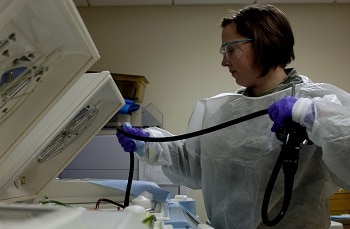
Når du besøger din GI-læge, vil der blive formuleret en behandlings-/restitutionsplan baseret på de diagnostiske resultater.
Hvis du selvmedicinerer mere end to gange om ugen for halsbrand, er dette alene et tegn på, at du skal behandles af en gastroenterolog. Tilstande, der ikke behandles af en erfaren GI, kan potentielt føre til en mere alvorlig komplikation.
Har du problemer med at sluge mad? Oplever du problemer med at tage væsker ned? Oplever du sporadisk eller konsekvent hævelse i halsområdet? Hvis det er tilfældet, kan dette muligvis være et advarselstegn på en mindre eller alvorlig tilstand, der bør bede dig om at søge en gastroenterolog for diagnose. "Enhver form for smerte eller agitation forårsaget af drikkevand kan være et advarselstegn på et alvorligt mave-tarmproblem," udtalte Dr. Vikram Tarugu, en erfaren, bestyrelsescertificeret og prisvindende gastroenterolog.
Andre advarsler, som gastroenterologen skal vide, er, om dine synkebesvær er ledsaget af hikke, hæshed i halsen, hyppig hoste eller mæthedsfornemmelse efter at have spist en meget lille portion mad. Hvis nogle af disse potentielt farlige advarselstegn forekommer, kan årsagen muligvis være fra kræft i spiserøret. Som sådan, hvis du oplever nogen af disse advarselstegn, tøv ikke for at søge råd fra din primære læge eller en gastroenterolog, hvis du allerede har et forhold til en. Lugte en usædvanlig lugt fra gassen? Dette kunne være et advarselstegn på smitsomme parasitter
Overraskende nok passerer den typiske person i gennemsnit næsten 2 liter gas på daglig basis, medmindre der finder abnormiteter sted i fordøjelseskanalen. Et advarselstegn, du skal være meget opmærksom på, er, hvis du oplever smerter eller ubehag i maveområdet i perioder med gasovergang, eller når du laver afføring.
Ydermere, hvis afføring og forbigående gas er begyndt at have en usædvanlig rædselsfuld lugt, kan dette være et tegn på, at du har giardia, som er en parasit, der irriterer og inficerer tarmene. Da giardia kan forværres, hvis den ikke behandles, bør et advarselstegn som dette ikke overses.
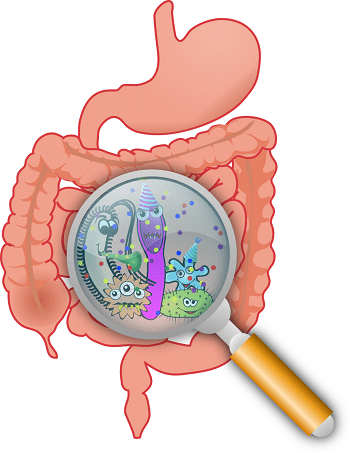
Vi har alle oplevet oppustethed på et tidspunkt i vores liv, men hvis det bliver vedvarende, er der en mulighed for, at der er en underliggende årsag. Hvis du har bemærket, at du har det svært med at tage dine shorts på, da du for blot et par dage siden havde dem på uden problemer, så er det måske ikke din skyld, at du "springer ud af at gå i fitnesscenteret".
Oppustethed opstår simpelthen, når vores indtag af mad/luft er for meget, og vores krop ikke kommer ordentligt af med det. Men hvis oppustethed starter pludseligt uden tilsyneladende grund (du har ikke spist i et stykke tid) og forekommer sammen med tilstedeværelsen af smerter eller blod i afføringen, kan dette være et advarselstegn på, at det er tid til at se en gastroenterolog.
Et sådant tegn kan muligvis betyde, at udviklingen af cøliaki, GERD (Gastroøsofageal reflukssygdom), IBS (irritabel tyktarm) forstoppelse eller galdesten er begyndt.
I alle tilfælde, hvor du genkender blod i din afføring eller unormale skarpe smerter i maveområdet, når du giver gas eller laver afføring, skal du helt sikkert diagnosticeres og behandles af en GI-læge.
Et advarselstegn, der bør diagnosticeres af en GI-læge, er pludseligt, uventet og uforklarligt vægttab. Selvom pludseligt vægttab kan tilskrives forskellige andre sundhedsrelaterede problemer, er fordøjelsessystemet typisk det bedste sted at lede efter roden til problemet.
Dr. Tarugu, en bestyrelsescertificeret gastroenterolog i det sydlige Florida med over 2.100 succesfuldt gennemførte procedurer udtalte, at "de første problemer, du ønsker at isolere som årsag til pludseligt vægttab, er kræft i maven, bugspytkirtlen eller tyktarmen".
Som sådan, hvis du oplever pludseligt vægttab, skal du kontakte en gastroenterolog, så du kan være sikker på, at det ikke er kræft eller Chrons/cøliaki (hvilket ville mindske din krops evne til at absorbere vitale næringsstoffer).

Mens du laver en afføring, ville det sandsynligvis være en smule bekymrende at bemærke nogle rødlige spor på toiletpapiret, da vi alle ved, at blødning fra sådan et område ikke er normalt. Blødning fra endetarmsområdet kan være et tegn på en potentielt farlig tilstand og bør diagnosticeres og behandles "med det samme".
Selvom det er muligt, at blødningen er forårsaget af hæmorider, hvis det ikke er tilfældet, vil det være absolut nødvendigt at søge en gastroenterolog, især hvis blødningen opstår igen, og hvis personen er over 40 år.
Fordøjelsesbesvær (også medicinsk omtalt som "dyspepsi") er udtrykket til at beskrive en tilstand, der involverer flere forskellige symptomer, der opstår under at spise et måltid. Nogle af disse symptomer kan omfatte følelsen af at blive "fyldt", når du har fuldført et måltid, foruden enten en "smerte" eller "brændende fornemmelse" i det øvre abdominale område.
Fordøjelsesbesvær er en ganske almindelig tilstand blandt middel- til ældre voksne, og den forekommer på månedlig, ugentlig eller endda daglig basis.
Hvis du oplever nogle af følgende symptomer, er det vigtigt at søge rådgivning og behandling hos en GI-læge for at forebygge komplikationer:
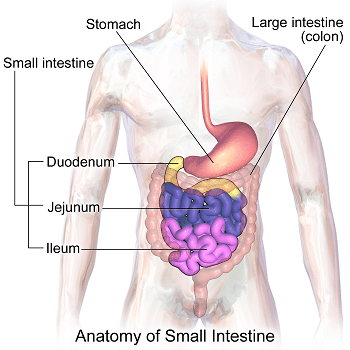
When visiting your GI doctor a treatment/recovery plan will be formulated based upon the diagnostic results.
Possible treatment suggestions may include:
Keep in mind that indigestion and heartburn are two different conditions with each having their own unique symptoms.
However, if you’re experiencing the symptoms of both then it’s possible that you’re suffering from both of the two. Regardless, whether the agitation is minor or severe it’s important that you take such a warning signal seriously and seek treatment from a GI doctor that will help to diagnose and remedy the condition(s).
Nausea is quite an unpleasant experience and can use intense feeling of dizziness, minor to severe discomfort and paint in the abdominal area. On the other hand, often times accompanies by nausea, vomiting is the occurrence of a contraction from the stomach that during times of nausea can help one feel a bit better as the content of stomach is during vomiting is the process in which it’s propelled up thru the esophagus.
Intense and consistent vomiting could possibly be a warning sign of a Gastroenteritis which can be treated by a gastroenterologist. Gastroenteritis is known to be a viral infection that causes inflammation within the digestive tract and can be treated thru the use of medication(s) which will be recommended by the gastroenterologist that you choose to visit.
Are you experiencing a dullish pain in the stomach, weight loss, the undesired to intake food due to pain or nausea/vomiting? If so, this could be a sign of a minor yet serious matter. Such warning signs could possibly mean that you’re suffering from a Peptic Ulcer which can be diagnosed by a gastroenterologist thru the use of an upper GI series or an endoscopy.
If you’re experiencing upper abdominal pains (one of the biggest signs of a stomach ulcer ) be sure that you seek the diagnosis/treatment from a GI doctor so you can have it treated while preventing the possibly of further complications arising from the condition.
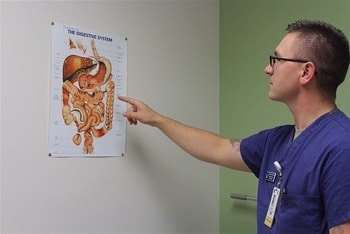
Individuals that may have GI disorders can suffer from warnings signs that are both painless and pain-induced. Such symptoms can be diarrhea/constipation (in some cases, irritable bowel syndrome). Such signs, whether they’re painful or not, could possibly be a sign of a condition other then IBS known as “centrally mediated abdominal pain syndrome” (or “CAPS” for short) which used to be medically referred to as “functional abdominal pain syndrome” (FAPS).
CAPS is a gastrointestinal disorder and is typically caused by a change in the nerve impulse sensitivity and will cause intense and frequent pain in the abdominal section which for some individuals will be quite severe.
In some cases, pain can be so intense and persistent that it’ll affect you in the similar way as the pain from a tooth ache as it can consume your focus/life since it has a tendency to “not go away” for extended periods of time. If such warning signs are present, seek counsel from a gastroenterologist where an antidepressant may be prescribed to not only reduce anxiety caused by the pain but to help alleviate the pain all together.
If you’re experiencing the feelings of belching, bloating or flatulence (build-up of gas in the alimentary canal), these could be warning signs that you you could possibly be suffering from a number of different conditions including allergies to certain foods, lactase deficiency, peptic ulcer disease or a H. Pylori Infection. Each of these we’ll cover below more in-depth so you can determine the possible cause(s) of your symptom(s).
Food Allergies – While not typical, the most severe allergic reaction that one can inherit from the ingestion of food is known as “anaphylaxis” which could possibly be life-threatening. Studies have shown that 90% of all allergies related to foods are caused from the ingestion of soy, wheat, shellfish, tree nuts, fish, peanuts, milk and eggs. If pain tends to arise after consuming such food items then this may be a signal that you need to seek the treatment of a gastroenterologist.
Lactase Deficiency – While lactase deficiency is pretty common with an estimated 3 million cases per year alone within the US, it’s an issue that’s brought upon individuals whose body has difficulty with digesting the sugar contents within dairy products. These issues arise in the digestive tract and can be treated by a GI doctor thru the use of recommended off-the-shelf medication(s) or by a prescribed medication (depending on the severity of your condition.

Individuals suffering from “Lactase Deficiency” can expect such warning signs to arise within 30 minutes to 2 hours from the consumption of milk or other food items containing dairy.
While symptoms aren’t always noticeable there are some warning signs that if arise should prompt you to see a gastroenterologist.
If you experience persistent and severe abdominal pain, have difficulty with swallowing or have bloody/black vomit that has the appearance of coffee grounds then seek diagnosis from a GI doctor for treatment as these are all warning signs that need attention before complications arise.
If you experience a yellowing of the eyes/skin then it’s very well possible that this is the warning sign that Jaundice is occurring. Jaundice is a condition in which there’s an excessive amount of bilirubin in the blood which is known, medically, as hyperbilirubinemia.
Bilirubin is a “yellow pigment” substance that affects the color pigmentation in the white of your eyes and your skin tone.
If you’re experiencing such signs of this condition schedule an appointment to see a GI doctor as quickly as possible as if not, further complications could develop which could lead to:
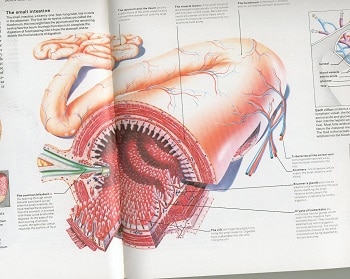
One warning signing of a possibly serious complication that should be diagnosed immediately is pain experienced in the abdominal section with the occurring pain spreading/radiating to your back. Such a feeling is a strong indicator and warning sign of “gallstone pancreatitis ”.
Gallstones are a pretty common cause of pancreatitis and this is caused by gallstones that develop in the gallbladder to block the bile duct which puts a stop to the pancreatic enzymes from being able to travel to your small intestine (which forces them to return to the pancreas).
During this process, these pancreatic enzymes will agitate the pancreas cells which will cause inflammation which can cause a great deal of pain that will radiate from the abdomen to the back. In some cases, this feeling of pain will also be accompanied by a tingling, prickly sensation. If such warning signs arise, seek attention from a physician or preferably a gastroenterologist who will help to diagnose the issue so proper treatment can be prepared/prescribed.
In the event that the gastroenterologist determines that your pancreatitis us due to the gallstones then an ECRP (Endoscopic Retrograde Cholangiopancreatography) will be performed which is a procedure conducted by the GI doctor to remove the stones.
For heavier/obese women it’s important to take cautious note of any pain that stems from the upper right-hand side of the abdominal sections as such a pain could be the indicator of “gallstone pancreatitis” (a prominent condition for heavier-set women). What’s causing such pain is the process of the gallstones blocking the bile duct which causes a chain reaction as this will stop any/all pancreatic enzymes from traveling to the small intestine providing the enzymes with no choice but to return to the pancreas. If the gallstones travel from the gallbladder to the common bile duct, gallstone pancreatitis can develop which is a condition that can continue to worsen and mature in pain while also leading to further complications if not treated.
If you’re medically considered to be “obese” and have had such pain on a regular or consistent basis, consult a GI doctor as treatment in the form of medication and surgeries are available (depending on the severity of the condition). Only making 1-2 bowel movements per week? Difficulty with going? Pain during defecating?
There are a few signs to look out for and notate when looking for signs of possible gastrointestinal complications. A few of these signs include difficulties with making bowel movements, only making 1-2 bowel movements per week or if you experience pain during defecating. Constipation is considered to be present whenever an individual is making only 1-2 bowel movements per week so if this persists this alone could be a warning sign of “anal fissure”. With an estimated 200,000 cases per year within the US alone, anal fissure is a condition that refers to the tearing in the lining of the anus which can cause an immense amount of pain during all three scenarios we referred above (making bowel movements and pain during throwing-up).
Anal fissures develop throughout the specialized tissues that line both the anus and anal canal and this is called the “anoderm”. The reason this can be (and more than likely “will be”) so painful is because of the over-abundance of nerves located within the anal canal. Diagnosis and treatment from a gastroenterologist is recommended. Typically, diagnosis of this condition can be determined by the physical inspection of area with either medication or surgery being recommended to treat (depending on the severity of the anal fissure).
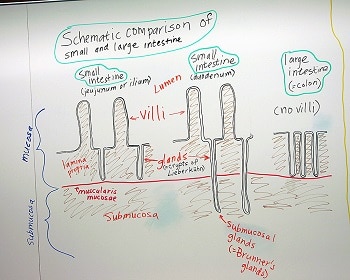
If you’re experiencing symptoms of a condition that includes intense and regular fevers, nausea/vomiting and diarrhea then notate these warning signs to show a gastroenterologist as these are signs of a possibly serious condition known as “bacterial gastroenteritis” which will need to be treated to prevent complications that could arise.
Bacterial gastroenteritis is a condition that develops and occurs whenever bacteria infiltrates your gut can and initiates an infection. If this occurs, inflammation will develop both in your stomach and intestines which will cause discomfort to say the least. Typical symptoms of “bacterial gastroenteritis” includes severe, extreme and persistent cramps in the abdominal area in addition to diarrhea/
While viruses are responsible for the majority of gastrointestinal infections bacterial infections are nearly just as common. A majority of people refer to bacteria-initiated infections as “food poisoning”.
There are a few different causes of “bacterial gastroenteritis” which can be poor hygiene habits, coming in close contact with pets or animals or from consuming foods/fluids that are contaminated with bacteria (even air-borne bacteria). If such warning signs arise, seek medical attention from a physician or preferably a gastroenterologist so the issue(s) can be properly treated to above any further development of bacterial growth.
First and foremost, any sign(s) of rectal bleeding is “not normal” and should never, in any scenario, be dismissed as a minor or non-severe matter as it’s a serious occurrence that requires the attention and treatment from a gastroenterologist.
One of the most prominent signs and symptoms of “irritable bowel syndrome” (IBS) is rectal bleeding and the presence of blood in the stool. In some circumstances, a warning sign is not making a bowel movement at all or only 1-2 times per week.
Blood expressed from the body caused IBD will appear to be “bright red” while if blood is originating from the upper area of the digestive tract the blood will be darker (dark/black stools). If such a sign has arisen be sure that you notate the darkness of the blood so you can provide this detail to a gastroenterologist who will use this information as a part of the diagnosis and treatment(s). In any case, if bleeding from the rectum is “severe” or if you’re throwing-up blood than this is a sign of a severe condition occurring which needs medical attention “immediately”.
Furthermore, such signs could also be a warning sign that you’re suffering from either “Crohn’s disease” or “ulcerative colitis” which are also conditions that you’ll want to have inspected by a GI doctor. Chron’s disease is a condition affecting 200,000 individuals per year and is a chronic, inflammatory irritable bowel disease that runs alone the digestive tract lining.
Ulcerative colitis is another chronic disease that inflames the bowel area which results in the digestive tract becoming inflamed. If any of the warning signs above are occurring, seek medical attention. You don’t want to take the chance of such conditions maturing in growth/size as not only could further complications arise but you may have to undergo additional treatments which otherwise could’ve been avoided had you have the condition(s) treated early on.
Experience vague or minor abdominal pain with a change in bowel movements last for 3+ months? Any changes in your normal bowel movement habits that are lasting for 3+ months is a sign that your body is changing, or, is changing due to an irregular occurrence/condition that should be looked at by a GI doctor; especially when you’re experiencing changes in bowel movement that are lasting for an extended period of time.
Irritable Bowel Syndrome (IBS) is a condition that can spark a significant amount of pain to its victims and will initiate a discomforting agitation feeling in the abdominal area. There are some very common symptoms of having IBS which include constipation, gas and diarrhea (in addition to a pain-induced belly). Having your IBS diagnosed for the severity will help you to have a planned pain-management regiment that will be created for you by the gastroenterologist.
When your stomach is experiencing pain it’s caused from the constipation or the diarrhea although is the painful feeling(s) diminish upon making a bowel movements then more than likely, your symptom(s) are an indicator of your pain being tied to a condition other than IBS (consult a GI doctor for diagnosis). This pain is initiated by contractions which can and will cause intolerable pain that will consume your life, make it difficult to rest and will make it difficult to focus on aspects of life (work for example).
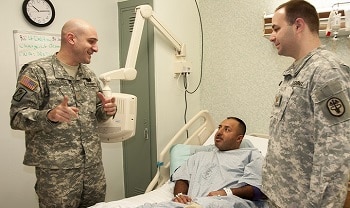
When it comes to your health it’s never a smart idea to over-look symptoms of possible health-related complications and rectal pain, bleeding from the rectum or the presence of blood in your stool are warning signs of a possibly serious complication. If you’re experiencing any of these signs, there’s a possibility that you body is suffering from one or more conditions that include it hemorrhoids, anal fissure, or anorectal cancer (although this is rare).
Hemorrhoids is a condition that should be treated by a GI doctor as Hemorrhoids is a medical condition that means the veins in the rectum and anus have become “swollen” which can cause the veins to bulge which will then result in severe agitation especially during bowel movements. Swollen hemorrhoids may be referred to by your gastroenterologist as “piles” as this is a commonly used medical term for this particular condition.
Hemorrhoids , depending on the severity of you case(if it’s determined by the GI doctor that you in-fact have it), you may undergo an operational procedure where the gastroenterologist will make use of specially designed medical equipment (not that intrusive) to “shrink” and “remove” the hemorrhoids which could actually be done on-site at the GI doctor’s office. Another treatment option is the GI doctor administering an injection in to the hemorrhoid with a specially formulated solution that will result in scarring the hemorrhoid to close it off.
Analfissur is another condition that could be occurring if bleeding from the rectum is prevalent as this condition is the occurrence of “tearing” in the anus lining which will cause blood to originate out of the rectum which can be noticeable by looking at the stool (is blood noticeable?).
Finally, bleeding from the rectum can “possibly” be a sign of “anorectal cancer ” although this is quite uncommon and not the typical cause of bleeding from the rectal region. “Anorectal cancer” is a malignant infested disease that forms within the tissues and glands of the anus. If you’re suffering with HPV (human papillomaviurs) will increase the chances of “rectum cancer development” so it’s vitally important that you seek diagnosis is warning signs such as rectal bleeding occur.
For elderly/older women, experiencing a bulge or in the rectal area (comparable to a stomach bulge) is a serious sign of either “rectal prolapse” or “vaginal prolapse”; serious yet treatable conditions that can be cured by a gastroenterologist thru the practice of medication(s) or procedural operations.
In the United States it’s estimated that 10% of all elderly women suffer from rectal prolapse with signs ranging from rectal bleeding to the feeling of a “bulge” in the rectal region (noticeable to the touch). Rectal prolapse, specifically, is a condition in which the parts of the large intestine will protrude out of the anus and will cause quite a bit of discomfort, pain, difficulty with making a bowel movement and rectal bleeding.
If such signs occer, don’t procrasitance on receiving treatment. Consult with a GI doctors so treatment preparation(s) can be facilitated.
Vaginal prolapse is another condition that rectal bleeding can be a warning sign of. Vaginal prolapse is a serious condition where the bladder, rectum, urethra, small bowel or uterus will begin to fall out place.
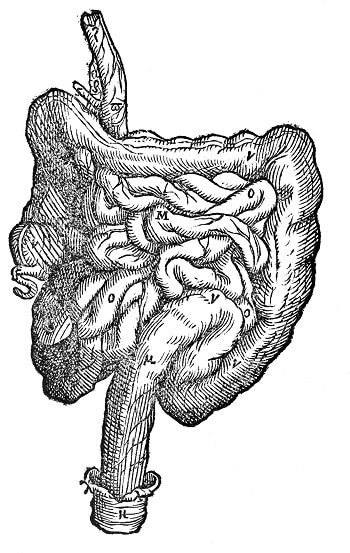
If any of these warning signs occur, it’s time to visit a gastroenterologist so you can receive an accurate diagnosis and treatment.
When it comes to your overall health, maintaining your normal body functions and avoiding complications a gastroenterologist can is a great go-to medical professional as you’ll be able to take advantage of the specialized training that the GI doctors has received so you can alleviate yourself of medical complications.
If any of this signs on this list has occurred, don’t hesitate to seek the intervention of a GI doctor. It’s paramount to ensuring the longevity of your health and will provide you with the peace-of-mind knowing that your symptoms are being affectively diagnosed and of course, treated.
We hope you found this guide helpful. Your gastrointestinal health is important to us and it’s our sincere mission to provide useful medical advice and suggestions.
 SIBO Coaching Program Registreringer af interesse
SIBO Coaching Program Registreringer af interesse nu åbner Jeg nævnte i sidste uge, at jeg havde nogle spændende nyheder at dele med jer. Jeg er glad for at kunne meddele, at jeg snart vil lancere mi
SIBO Coaching Program Registreringer af interesse
SIBO Coaching Program Registreringer af interesse nu åbner Jeg nævnte i sidste uge, at jeg havde nogle spændende nyheder at dele med jer. Jeg er glad for at kunne meddele, at jeg snart vil lancere mi
 Hvad holder dit fordøjelsessystem sundt
En urolig mave kan kaste hele din dag ud i en sløjfe. Uanset om du har halsbrand, gas, forstoppelse eller oppustethed, er det en ubehagelig følelse. En god sund mave betyder, at du vil opleve mindre b
Hvad holder dit fordøjelsessystem sundt
En urolig mave kan kaste hele din dag ud i en sløjfe. Uanset om du har halsbrand, gas, forstoppelse eller oppustethed, er det en ubehagelig følelse. En god sund mave betyder, at du vil opleve mindre b
 Hvorfor har jeg ondt i maven om natten?
Hvad er mavesmerter? Krampende mavesmerter opstår som følge af hyperaktivitet af normal tarmperistaltik, også kendt som muskelsammentrækninger, og kan være forårsaget af overskud gas, irritation af
Hvorfor har jeg ondt i maven om natten?
Hvad er mavesmerter? Krampende mavesmerter opstår som følge af hyperaktivitet af normal tarmperistaltik, også kendt som muskelsammentrækninger, og kan være forårsaget af overskud gas, irritation af